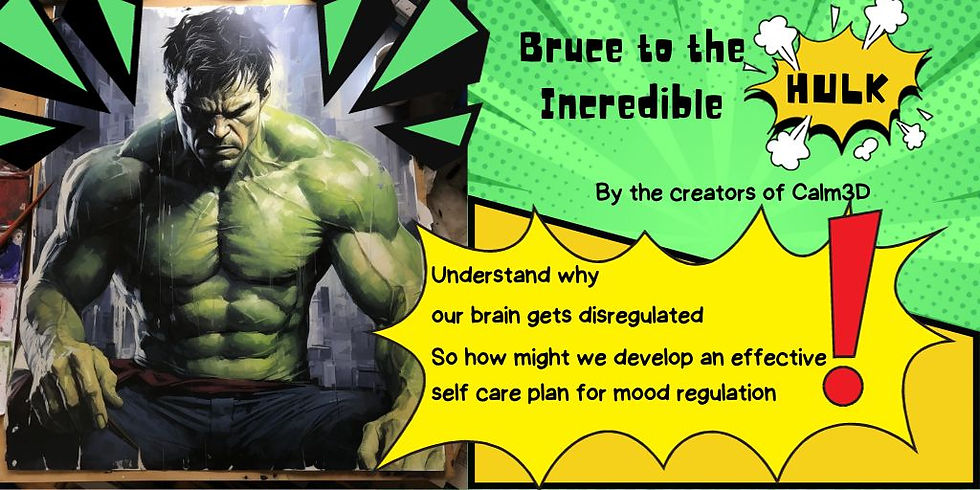
Emotions-Centred Coaching Singapore: How High Achievers Use Overwhelm to Build Emotional Intelligence
- Ignatius Quek
- Oct 7, 2025
- 3 min read
“You’re a high achiever in Singapore, delivering results day after day — but sometimes your emotional system overtakes you. Emotions-Centred Coaching in Singapore offers a pathway out of overwhelm, turning your emotions into allies, not obstacles.”
You’ve built a track record of success. Deadlines met. Targets exceeded. Respect earned. Yet sometimes, in the quiet moments, your chest tightens, your mind spirals, or your patience fractures. That shift from control to crisis is familiar. It’s not a sign of weakness — it’s your emotional system asking for a new approach.
Emotions-Centred Coaching Singapore offers precisely that: a bridge between your high performance and your emotional resilience. This is emotional intelligence coaching tailored for high achievers in Singapore — not generic self-help, not superficial wellness, not deep psychotherapy. It’s a strategic partnership with your emotional system.
EQ is a Muscle - Why High Achievers in Singapore Need Emotional Coaching
In Singapore’s hyper-competitive environment, high achievers are prized — until the pressure builds. Many professionals live by frameworks, habits, and hustle. But emotional resilience tends to be an afterthought.
The ability to stay cool helps the brain remain in the regulated state where it utilises its cognitive- thinking and social relating abilities. Emotional regulation is a bedrock of emotional intelligence also known as EQ.
However, when overwhelm hits, your logical mind dims, decision-making falters, and reactivity takes the wheel. It’s not that you’re deficient — it’s that your emotional system has no “upgrade” built in yet. That’s where emotional regulation coaching Singapore becomes a game changer.
What Happens in an Emotions-Centred Coaching Session
Here’s a step-by-step look at how one session unfolds (60-75 min):
1. Grounding & Regulation
We start by anchoring your system — breath, posture, physiological checks. This helps you return to your “window of tolerance.”
2. Emotional Mapping & Inquiry
You bring a real moment of overwhelm. We map which emotion(s) came up, where you felt them physically, how intense.
3. Decoding the Message
Every emotion carries a signal — anger for breached boundaries, anxiety for uncertainty, guilt for misalignment. We trace back to what’s behind the reaction.
4. Integration & Action
We co-design small, aligned steps — a conversation to have, a boundary to set, a pause to take.
5. Reflection & Closure
You name what shifted, what strength you witnessed, and ground the insight into your system.
Over time, you shift from being emotionally hijacked to emotionally fluent — able to feel, interpret, and act with coherence even under pressure.
Why Coaching — Not Just Wellness, Exercise, or Therapy
Wellness & Exercise
Great for foundation: better sleep, movement, nutrition all support resilience. But when your system is overloaded, telling it “go to gym” or “eat better” often feels hollow.
Therapy / Counseling
Deep healing, unpacking trauma, diagnosis — all critical. If you’re working through trauma or mental health conditions, therapy is essential. But for someone already functioning at high levels, coaching optimises — it amplifies what’s already possible.
Emotions-Centred Coaching
This is your performance support: emotional fluency, resilience under fire, leadership presence from integration. It works with therapy and wellness, not in place of them.
Coaching Outcomes That Matter to High Achievers:
With consistent coaching, you’ll see:
More clarity in ambiguous situations
Decisions rooted in values, not fear
Stronger leadership presence with less effort
Lower burnout rates, more sustainable momentum
Deepened communication, clear boundaries
Importantly, you'll discover how utilising awareness of your emotional state helps you express and meet your needs more, and be an authentic self even in challenging or awkward situations.
Executive Coaching FAQs
How long is one coaching session?
Typically 60 minutes, sometimes 75 minutes if deeper regulation work is needed.
How many sessions will I need?
Most clients see meaningful shifts in 8–12 sessions (biweekly or monthly). Others continue in a maintenance rhythm.
Can this coaching be done virtually in Singapore?
Yes — many clients in Singapore and abroad use virtual coaching; the emotional insight work translates well online.
Does insurance or subsidies cover emotional coaching?
Generally, coaching is a private investment and not classed as clinical therapy, so it's not covered under typical health insurance or government subsidies.
What’s the difference between executive coaching and emotional coaching?
Executive coaching often emphasises strategy, leadership competencies, feedback, and organisational objectives. Emotional intelligence coaching integrates inner emotional fluency with those outcomes — bridging performance with presence.
Next Steps
If you're a high achiever in Singapore who’s ready to anchor your success in emotional fluency, let’s take a first step together. Book a discovery session today and feel what it’s like to partner with your emotions instead of being hijacked by them.



Comments